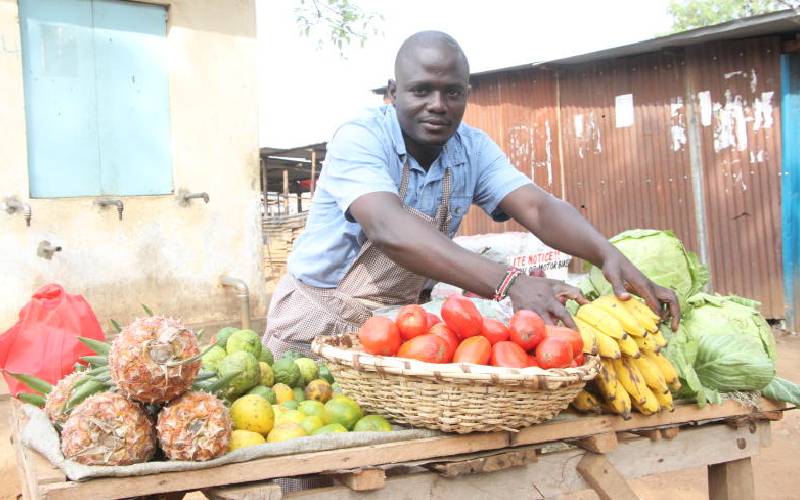×
The Standard e-Paper
Kenya’s Boldest Voice

Ismael Onunga a fruits and vegetable vendor at Sokomjinga market in Migori says that business has gone down since the outbreak of Covid-19. [Caleb Kingwara, Standard]
Squeezed from all sides, retailers are reporting very little to be happy about in 2022.